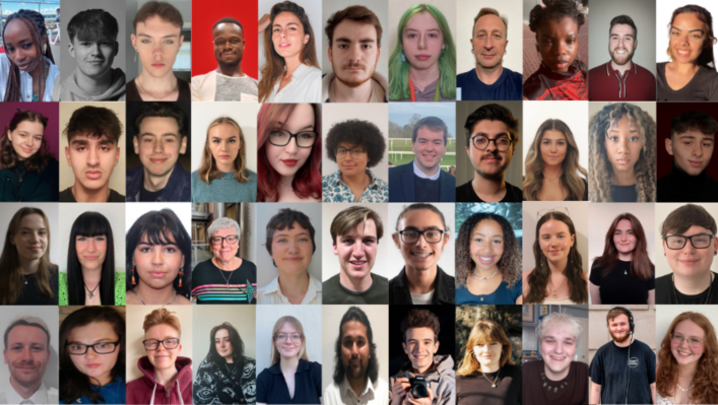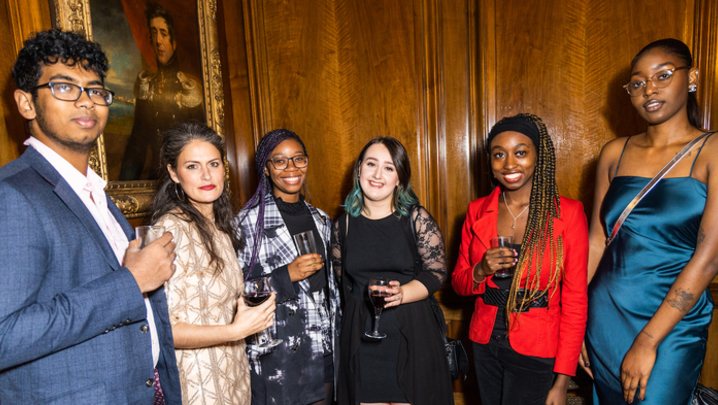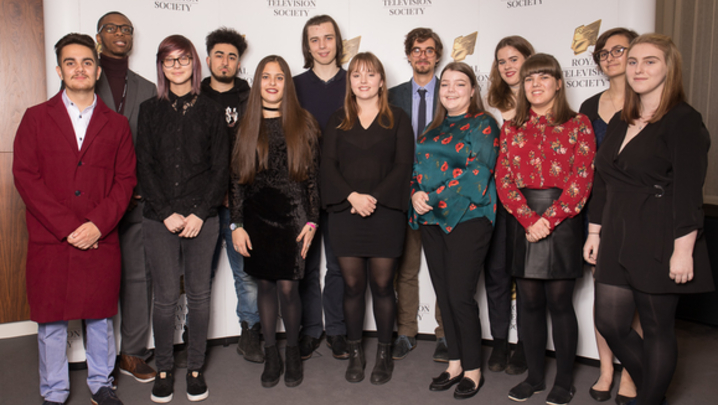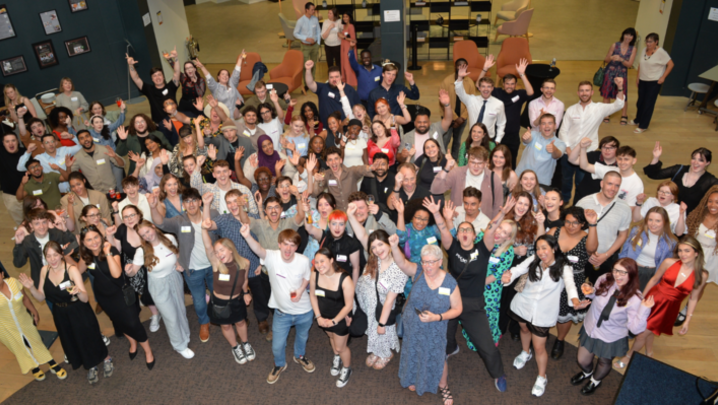Anne Dawson learns how RTS bursary students have been coping during the crisis
“It’s all a bit of a mess, really,” says Charlotte Humphreys. “I was living in south London, which had the most cases of Covid-19 in the UK, so I packed some of my most important stuff into Ikea bags and left.
“I’m paying £700 a month for a room I’m not living in, my stuff is at four different addresses and I’m staying with my Dad, who has a terminal lung condition. I bought a car, an absolute banger, for £275, because I need to get shopping for my Dad.”
Charlotte is coming to the end of the second year of her course at London’s University of the Arts. In common with many other RTS bursary students, her home life is, at the best of times, not without its challenges, and this is not the best of times.
Alicia Newing, studying film and television production at Hertfordshire University, was looking forward to graduating (she’s on track for a First) and taking up a six-month contract at post-production company Clear Cut, now postponed indefinitely. “Be prepared for an outpouring of emotion,” she says, as we agree a time to speak.
When we do talk, she is surprisingly calm as we discuss her final-year project. Alicia and her group have invested so much time and energy in it, they are trying to complete it remotely – despite it no longer forming part of their assessed work.
“I’m going to continue applying for jobs, but the likelihood is that most places won’t hire anyone for at least a few months,” she says. “Especially when there’s so few shows in production. I’m worried about losing momentum and getting stuck in a rut. I know there are thousands of people in this industry who will also be stuck. It’s going to be harder than ever to get a foot in the door.”
Similar stories are told by many of the students. Those graduating this year have had the worst of it, as universities were forced to close as part of the lockdown. The end of the final year is usually a time for collective celebrations, but not for this year’s graduates. Whether to stay at uni or go back home was a difficult choice – most of the students had about 24 hours to make up their minds and pack.
“I didn’t get to say goodbye to the friends I’d made at uni. We didn’t know it would be our last rehearsal, our last lecture, our last project meeting,” says Josie Bakewell, a final-year student at Staffordshire University. “Graduation ceremonies are postponed, and end of year/degree celebrations have been cancelled.”
Naturally, students are concerned about their results. The goalposts have moved – and no one is quite sure where to. Some students have been given new project briefs, with the opportunity to use archive footage.
But these depend on the students having their own equipment, which they often lack. Other universities have replaced exams with course work, or, in some cases, open-book exams.
One first-year journalism student, Oliver Youd, had his exams suspended, then reinstated. “I didn’t feel motivated to study,” he says. “I had mentally switched off from uni. Now, I’ve got to get my head back into it. I have an old computer and unreliable internet. The libraries are closed. It makes it hard to stay focused and positive.”
Income is a big issue for many of the students, who support themselves through part-time jobs, often in hospitality, entertainment or on campus. Several are uncertain about their employment status or whether they are likely to be paid during lockdown.
‘We need information on what’s actually going on in the TV industry’
Charlie McMorine, a final-year student, had more warning of the impending shutdown than most. He was working for Manpower in the equipment-hire shop at Birmingham City University, which runs a partnership scheme with Wuhan University of Science and Technology.
“It started a week or so before the lockdown,” he says. “First, we were told we couldn’t hire out any mics, then any audio equipment. It was all very strange. I don’t know what’s happening about my job or whether I’m going to be paid.”
The students recognise that universities are having a tough job making decisions with so much uncertainty over how the pandemic will play out.
Nevertheless, the students all see the potential for a better “new normal” in the future, including reduced levels of pollution and potentially less commuting. For some, enforced isolation has led to increased creativity as they have revived old interests and taken up new ones.
Technology bursary student Keoni D’Souza has created a series of podcasts, Sip By Sip; Charlie is honing his skills in drone flying; Charlotte has knitted a scarf. Many had been in touch with old friends on social media.
Generally, people have been kinder and more compassionate. In some cases, tutors or bursary mentors have been particularly helpful, offering advice on how to navigate the uncertainties. Overall, there has been a shared sense of “we are all in this together”.
The students’ rapid departure from university and the postponement of their transition into work has, however, left many feeling a deep sense of loss, anxiety and concern over their futures.
Research by the charity YoungMinds on the impact of Covid-19, published on 30 March, shows that vulnerable young people have been particularly affected by social isolation. The lockdown has turned their world upside down as routines and support systems have been eroded.
“We need small challenges to focus on,” says Charlotte Humphreys. “And information about what’s actually going on in the TV industry.”
Understandably, students have wanted speedy answers to their questions and universities have had to make some quick decisions. Many have adopted a “no detriment” policy, which means that any assessment or exam taken during this period will not be detrimental to average grades achieved before the lockdown.
However, these schemes can’t mitigate against students having no final project to demonstrate their talents to potential employers, or losing that highly sought-after placement they worked so hard to secure.
These are issues for our industry partners to consider. Many are already stepping up to the challenge. In homes across the UK, people are delivering online conferences or webinars for students, usually free of charge.
A big thank you from the RTS is due to the talent managers at All3Media, Anouk Berendsen and Tamara Durnford, who are providing webinars for graduating bursary students.
Thank you also to our mentoring volunteers, many of whom have taken the opportunity to check in with their mentees. The students really appreciate these connections. Social isolation makes them even more valuable.
If you find yourself with unexpected time on your hands and have knowledge or skills that would be helpful to those about to join the industry, please consider mentoring for the RTS or delivering an online masterclass. Let’s all help the class of 2020 to get the foot in the door they deserve.
Anne Dawson spoke to 20 of the 162 RTS bursary students and alumni in the fortnight leading up to Easter. If you would like to offer your services as a mentor or to deliver an online webinar or masterclass, please email Anne or Megan Fellows at bursaries@rts.org.uk.







